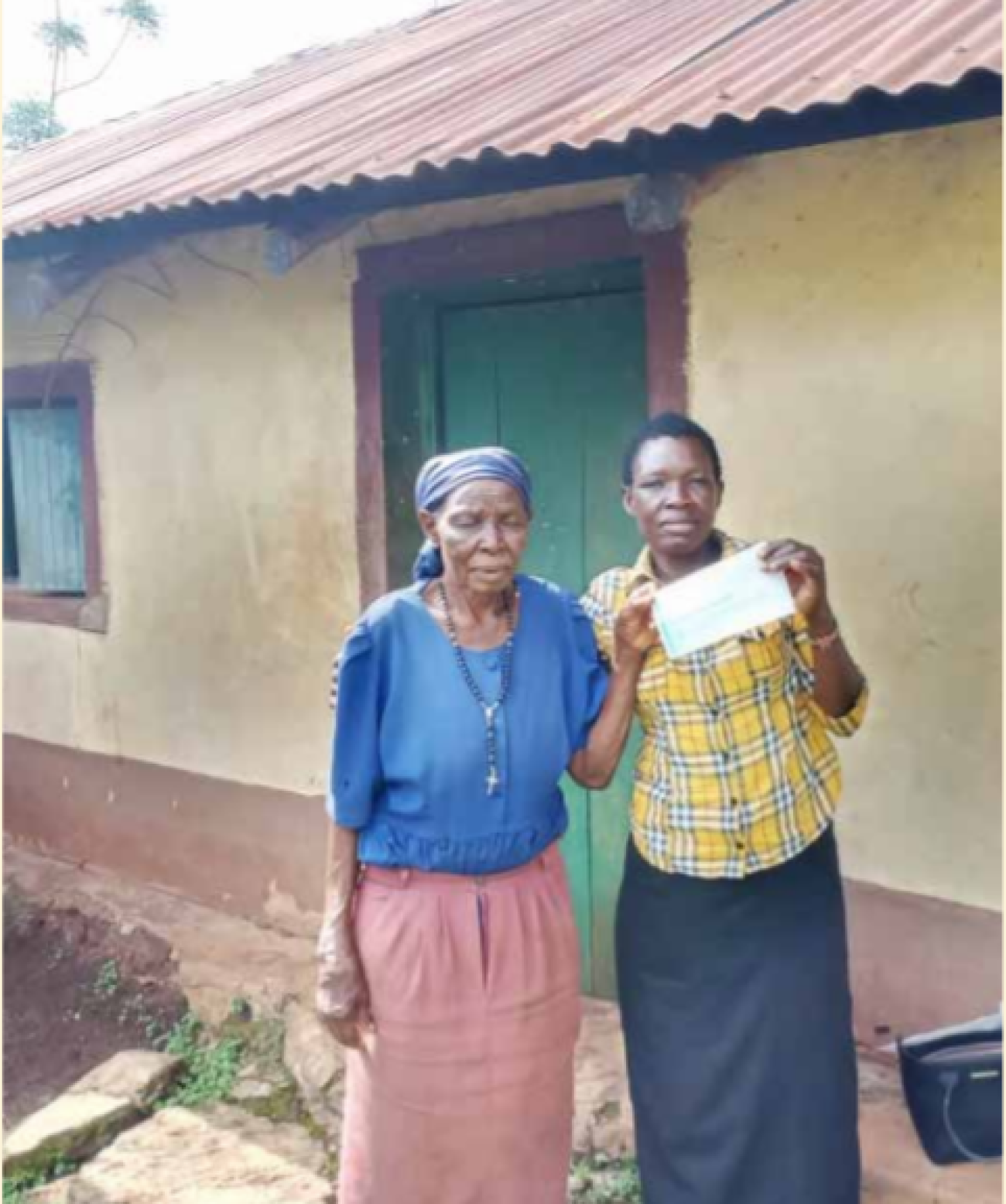Navigating the alternative justice systems to secure women’s rights to land in Kisumu

The role of the Alternative Justice System in protecting land and property rights of vulnerable groups
In Kenya women's rights to own, inherit, manage, and dispose of property are under constant threat by customs and individuals, including unscrupulous duty bearers who believe that women do not deserve, and cannot be trusted with marital land and property. groups.
The devastating effects of property rights violations including poverty, disease, violence, and homelessness harm women, their children, and Kenya's overall development. Women's property rights violations are not only discriminatory, but they also pose greater development risks. Working within the county of Kisumu, the Civil Society Organisations Network - which is one of the CSO grantees receiving access to justice funding - comes across cases where poor women are targeted.
Often because of their status as widows, women have to fight for access and control of family land almost always immediately after the death of their husbands. Under such circumstances, they are vulnerable to other family members or community members who want their land. In some cases, family members secretly alter the title deeds denying them ownership of their marital property. Such cases are commonplace within the dominant patriarchal culture, despite very progressive land laws that offer greater tenure security to women and girls. Ms. Mary Achieng’ Obala (name changed) is one widow who has been receiving legal support from the CSO Network. The 86-year-old widow was denied access to her family land upon the death of both her husband and her eldest son. She was removed from her home, which she shared with her three nephews. and her piece of land was hurriedly sold to an unsuspecting buyer who claimed the land with support from the local administration officials. Mary sought refuge from her only surviving daughter, Alma (name changed), who in turn sought support from the CSO Network. Alma was able to approach. the CSO Network after listening to one of the radio programmes hosted by a local station. The show had brought together a legal expert and a member from the Luo Council of elders.
The focus of the discussion was on the role of the AJS in protecting land and property rights of vulnerable groups. Alma commented that she had reported to the village elder, who referred her to the area chief. Both the village elder and the area chief confirmed that the land had been sold to a ‘new owner’. She sought protection from the local administrative office but was convinced that there was collusion between the local administrators and the buyer.
The chief once instructed her to leave his office and even threatened her from stepping back into the village. The CSO Network filed the matter with the Luo Council of Elders for local dispute resolution.
A sitting was constituted with three members of the council from the sub-county in question and were tasked to do a thorough background check and review the history of land tapping into its own intricate network of village elders. The elders were able to locate Mary, who at this time was unable to walk, and she quickly provided them with first-hand information on her claims to the contested piece of land.
The PLEAD CSO was also able to facilitate a community dialogue chaired by ‘Ker’, the head of the Council of Elders with his team also present. The dialogue was organised to enhance communal buy-in for alternative dispute resolutions but also to bring the affected family together, including the nephews, daughter, and the brother-in-law.
From the testimonies adduced, the meeting established that the land was irregularly sold, and that Mary was indeed the rightful owner of the piece of land. Armed with the resolutions, the CSO Network was able to facilitate the chair of Luo Council of Elders’ and his team to accompany Mary and her daughter to the office of the land registrar in Kisumu where additional facts on the ownership were established.
The registrar was able to summon the ‘buyer’ and documentation was reviewed with all parties present. The registrar recalled the ‘irregular’ deed processed by the buyer and was able to process a title deed for Mary affirming her tenure claim to the contested piece of land. This win was instrumental for setting the agenda of the AJS in Kisumu county, and enhancing trust in the informal justice system, particularly in the new policy environment with the launch of the new Alternative Justice Systems Baseline Policy.
The CSO Network is one of the CSO grantees supported by the Programme for Legal Empowerment and Aid Delivery in Kenya (PLEAD) with financial support from the European Union, and UNDP in Kenya through its civil society facility, the Amkeni Wakenya Project. Currently in its second year of implementation, the CSO Network is furthering the Making Rights a Reality project in the greater county of Kisumu.
The project is keen on finalizing the standard operating procedures for alternative dispute resolutions as animated by the Alternative Justice Systems in Kisumu. Additionally, the project also provides pro bono assistance and legal literacy to the large proportion of poor people in the county. In addition, the project provides improved partnership working with the formal justice system and the AJS and the judicial officers to ensure enforcement of AJS resolutions, and continuous capacity building in the areas of gender sensitivity and response for the AJS.




